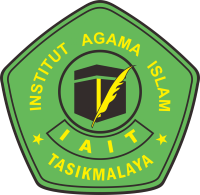Effective Learning Strategies to Improve Learning Outcomes
DOI:
https://doi.org/10.61166/responsive.v1i3.30Keywords:
Strategy, Learning, EducationAbstract
Learning strategies are plans and methods used by educators to facilitate students' learning processes and effectively achieve learning objectives. This article discusses various learning strategies that can be implemented in the classroom, such as cooperative learning, problem-based learning, and contextual learning. Cooperative learning emphasizes collaboration among students in small groups to build shared understanding. Problem-based learning encourages students to actively seek solutions to real-life problems, thereby enhancing critical and creative thinking skills. Meanwhile, contextual learning connects subject matter with everyday life situations to facilitate students' understanding and application. Furthermore, this article highlights the importance of selecting strategies that are appropriate to student characteristics, learning objectives, and available resources. With appropriate learning strategies, it is hoped that student motivation, participation, and learning outcomes can be significantly improved. Research and practice show that learning success is greatly influenced by teachers' ability to manage and implement varied and adaptive learning strategies. Therefore, the development of teacher competency in learning strategies needs to be continuously encouraged to create an effective and enjoyable learning process for students.
References
Johnson, D. W., & Johnson, R. T. (2009). An educational psychology success story: Social interdependence theory and cooperative learning. Educational Researcher, 38(5), 365-379.
Kearsley, G., & Shneiderman, B. (1998). Engagement theory: A framework for technology-based teaching and learning. Educational Technology, 38(5), 20-23.
Thomas, J. W. (2000). A review of research on project-based learning. San Rafael, CA: Autodesk Foundation.
Toto Fathoni dan Cepi Riyana. (2011). Kurikulum dan Pembelajaran. PT Remaja Rosdakarya.
Asrori, M. (2013). "Pengertian, Tujuan Dan Ruang Lingkup Strategi Pembelajaran." Madrasah: Jurnal Pendidikan Dan Pembelajaran Dasar, 5(2), 26.
Mulyana, D. (2008). Metodologi Penelitian Kualitatif: Paradigma Baru Ilmu Komunikasi dan Ilmu Sosial Lainnya. Bandung: Remaja Rosdakarya.
Sanjaya, W. (2008). Perencanaan & Desain Sistem Pembelajaran. Jakarta: Kencana Prenadamedia Group.
Sugiyono. (2007). Metode Penelitian Kuantitatif, Kualitatif, dan R&D. Bandung: Alfabeta.
Bandura, A. (1997). Self-efficacy: The exercise of control. New York: Freeman.
Wina Sanjaya. (2011). Strategi Pembelajaran. Kencana Prenada Media Group.
Joyce, B., Weil, M., & Calhoun, E. (2015). Models of Teaching.
Trilling, B., & Fadel, C. (2009). 21st Century Skills: Learning for Life in Our Times.
Slavin, R. E. (2018). Educational Psychology: Theory and Practice.
Woolfolk, A. (2016). Educational Psychology.
Gulo, W. (2008). Strategi Belajar Mengajar. Jakarta: Grasindo.
Hamruni. (2012). Strategi Pembelajaran. Yogyakarta: Insan Madani.
Salim, H. (2012). Strategi Pembelajaran. Medan: Perdana Publishing.
Mulyono, H., & Wekke, I. S. (2018). Strategi Pembelajaran di Abad Digital. Gawe Buku.
Downloads
Published
How to Cite
Issue
Section
License
Copyright (c) 2025 Euis Latipah, Harlyan Nurpatimah, Nisrina Syahla, Siti Jenab Setiawati

This work is licensed under a Creative Commons Attribution 4.0 International License.











